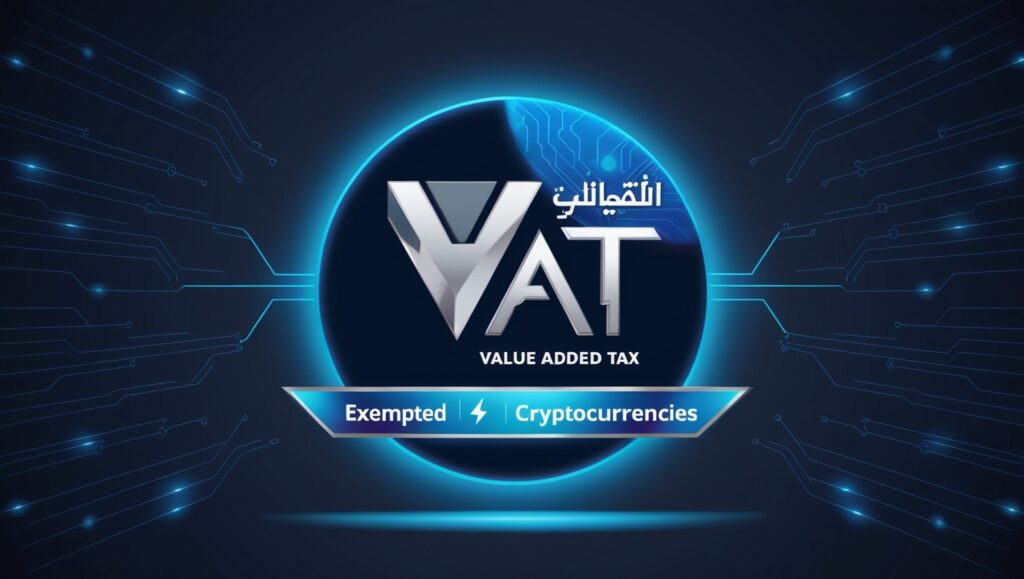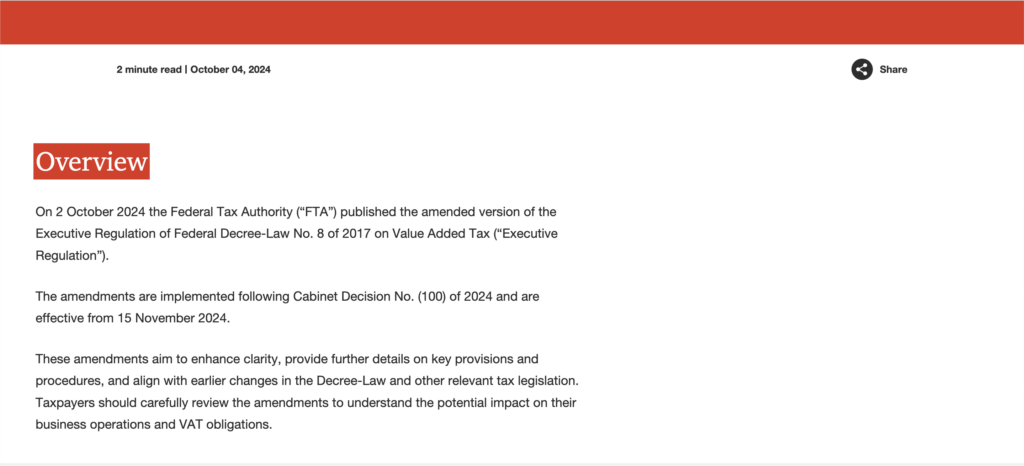
The United Arab Emirates (UAE) has announced an exciting new policy for Cryptocurrencies (VDA).
UAE Announces Crypto (VDA) VAT Exemption
That all cryptocurrency VDA transfers and conversions will be exempt from Value Added Tax (VAT). This change will take effect on November 15, 2024, and it will also apply to any transactions made since January 1, 2018.
This decision was first shared in Arabic on October 2 and then translated into English on October 4, which makes it easier for people and businesses to use cryptocurrencies by removing tax costs. It also brings the crypto industry more in line with traditional financial services, making the UAE a more inviting place for digital asset transactions and moving forward UAE may be accept Bitcoin as a payment method in the near future as Lousiana did earlier this week.
Aligning Crypto (VDA) with Traditional Financial Services
This exemption is a big step forward, making it clear that Value Added Tax (VAT) is no longer applies to virtual digital assets (VDA) like cryptocurrencies. Now, all cryptocurrency transfers and conversions won’t be charged the 5% VAT that was previously charged.
The new rules also include services like managing investment funds and transferring ownership of virtual assets. This change helps validate cryptocurrencies (VDA) in the UAE’s financial system and treats them similarly to traditional financial services, in which many are already exempt from VAT. By recognizing cryptocurrencies as legitimate financial instruments, the UAE promotes a favorable environment for existing businesses and positions itself as a global leader in the digital asset space.
The impact of this VAT exemption is huge for the UAE’s cryptocurrency industry. By removing the tax, the costs of digital asset transactions will be much lower, which should encourage more people and companies to use cryptocurrencies.

According to PwC, a global consulting firm, this change will help businesses in the crypto sector save money on their operations. As a result, more crypto exchanges and blockchain startups may want to set up in the UAE, boosting the country’s reputation as a leading global hub for cryptocurrencies.
UAE’s Commitment to the Cryptocurrency (VDA) :
Younis Haji Al Khoori from the Ministry of Finance noted that “These amendments help minimise misunderstandings, simplify procedures, and ultimately contribute to an improved quality of life for all,” showcasing the UAE’s commitment to leading the way in the rapidly evolving digital currency landscape.
Businesses in the blockchain sector can get back VAT on certain transactions that go back to 2018. This means they can receive tax refunds, which will help improve their finances. However, to do this, companies might need to share their transaction records, which will help make the crypto market more transparent and ensure they follow the new rules.
This VAT exemption is part of the UAE’s larger strategy to enhance its financial frameworks and support modern Web3 infrastructure. The establishment of the Virtual Assets Regulatory Authority (VARA) in March 2022 has played a crucial role in overseeing the regulation of crypto exchanges within the region. This regulatory body, alongside the Securities and Commodities Authority (SCA), aims to create a safe environment for digital asset trading and foster innovation.
This VAT exemption supports the UAE’s goal of becoming a global hub for digital assets and blockchain technologies. Treating cryptocurrency (VDA) like financial services is expected to encourage blockchain businesses to set up shop in the region, increasing the digital economy.
This move also aligns with international best practices, where financial services are generally VAT-exempt. By extending this exemption to digital assets, the UAE reinforces its position as a leader in digital finance.
With the UAE’s newly announced tax break, the country is likely to attract more foreign investment in the crypto sector. The retroactive application of the VAT exemption could incentivize companies that have previously operated in the UAE but faced high tax burdens. The tax refunds can provide them with additional capital to reinvest in their businesses, encouraging further growth and innovation in the local blockchain ecosystem.
Importance of Analyzing Crypto VAT Positions
Industry experts recommend that businesses carefully analyze the impact of these amendments on their VAT positions. This includes reviewing past transactions to determine potential tax refunds and ensuring compliance with the new regulations moving forward.
As the UAE’s decision to exempt VAT on cryptocurrency transactions represents an important shift in its economic landscape. As the nation continues to develop its regulatory framework and promote transparency, this landmark decision not only enhances the UAE’s reputation as a global leader in the digital economy but also sets a positive example for the future of cryptocurrency regulation worldwide.








